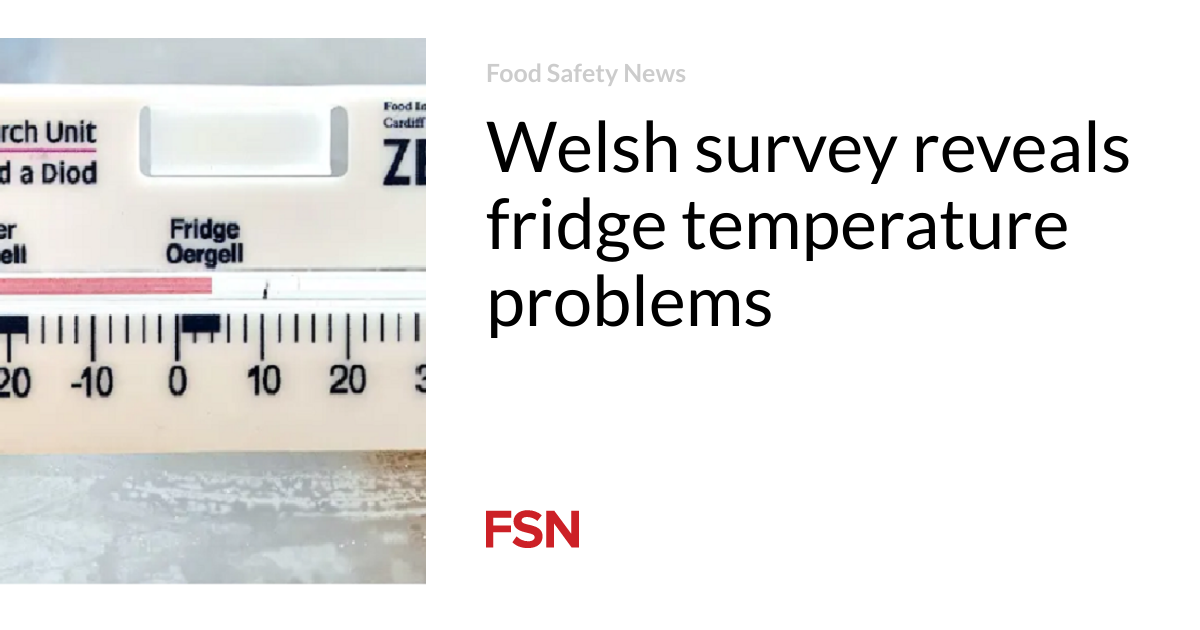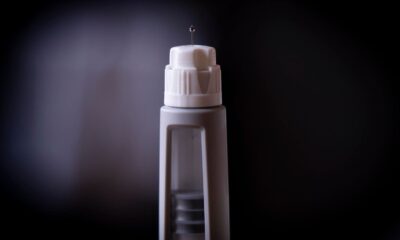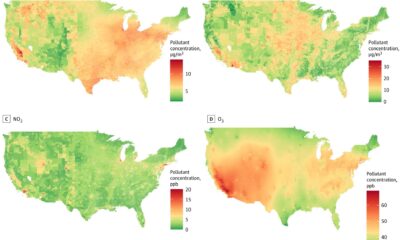Food
Research in Wales shows that there are problems with the temperature of refrigerators

A study has found that more than seven in 10 household refrigerators tested in Wales were operating at a higher temperature than the suggested safe temperature.
Food safety experts from Cardiff Metropolitan University’s ZERO2FIVE Food and Drink Research Unit carried out the research.
Findings showed that 71 percent of refrigerators exceeded the recommended safe temperature of 5 degrees C (41 degrees F). Additionally, 37 percent of refrigerators in the study ran at 10 degrees C (50 degrees F) or higher.
Guidelines from the Food Standards Agency (FSA) recommend that household refrigerators operate at a temperature of 5 degrees C (41 degrees F) or lower. Refrigerators above this temperature can increase the growth rate of foodborne bacteria such as Listeria monocytogenes, which can cause listeriosis.
Previous research from ZERO2FIVE found that although 79 percent of respondents thought cooling is important, 84 percent were unaware of the safe operating temperature of a refrigerator.
Given this lack of awareness, ZERO2FIVE researchers developed a citizen science project and handed out 1,175 fridge thermometers to the public at events in Wales. Participants were instructed to upload a photo of the thermometer in their refrigerator and record its operating temperature using an online tool.
The results lead to public actions
Of the 201 participants, 90 percent reported that they did not have a refrigerator thermometer before participating in the study. The results showed that temperatures in household refrigerators ranged from 0 to 20 degrees C (32 to 68 degrees F).
Of the 127 participants with refrigerator temperatures above 5 degrees C (41 degrees F), 80 percent were concerned about the potential for food poisoning bacteria and planned to adjust the temperature of their refrigerator. Another 18 percent said they would consider changing the settings, while just 2 percent were not concerned and had no plans to adjust the refrigerator temperature.
In total, 39 percent of the refrigerators were younger than five years old, 29 percent were between 5 and 10 years old and 14 percent of the participants did not know how old their refrigerator was.
Thirty-nine people lived in rental properties and did not have their own refrigerator. The analysis found that 82 percent of those in rental properties had refrigerators at unsafe temperatures, compared to 62 percent of those living in properties they owned.
The announcement of the results coincides with the Food and Agriculture Organization of the United Nations (FAO) and the World Health Organization (WHO) World Food Safety Day, which takes place on June 7 each year. One of the WHO’s five keys to safer food is ‘keeping food at a safe temperature’, which mentions the importance of proper refrigeration.
Dr. Ellen Evans, a food safety behavior reader at the ZERO2FIVE Food and Drink Research Unit, said the research revealed findings on the temperatures of household refrigerators.
“To ensure people use their refrigerator at the correct temperature and store food safely, we recommend everyone use a refrigerator thermometer, which is inexpensive to buy, and then adjust the refrigerator controls to ensure it is on 5 degrees C or below,” she said.
“Our findings also show that citizen science research can help collect food safety data from the public, communicate important food safety messages and promote better food safety practices.”
The results were presented earlier this year at the European symposium of the International Association for Food Protection (IAFP) in Geneva. Some findings and another citizen science research project will be showcased at the IAFP annual meeting in Long Beach, California, July 14-17.
(To sign up for a free subscription to Food Safety News, click here.)













